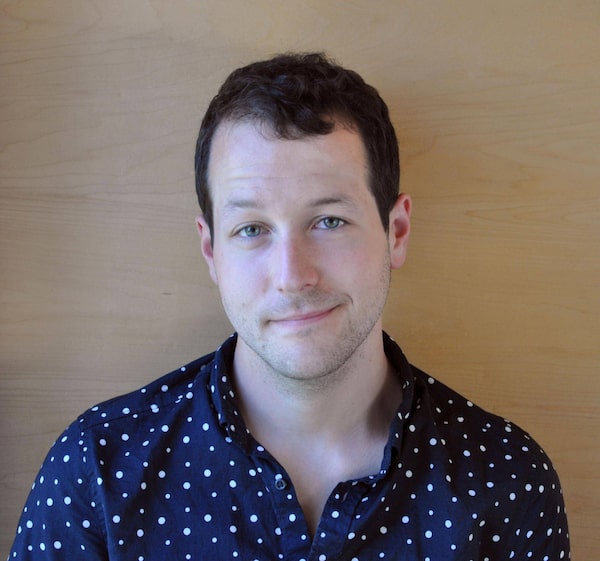
Andrew Battershill.
A debut novel making the Giller Prize longlist is enough to draw attention, but what likely stuck with readers of Andrew Battershill's 2015 novel, Pillow, was its memorable style: crime fiction with strong literary sensibilities and an absurdist flair. Battershill's latest, Marry, Bang, Kill, delivers similar goods, this time through the story of Tommy Marlo, a mugger who stumbles upon a heist bigger than he can handle. When a hitman pursues Tommy to Quadra Island near Vancouver, both may have met their match among the locals. Battershill lives in Vancouver and Quadra Island.
Quadra is such an idyllic place. Why set a crime novel there?
I think it'd be fair to say I intended to write a novel, a dark noir specifically, set on Quadra. It's such a quiet, beautiful place that I thought there would be a fun tension between that setting and a crime thriller. You know, robbery and manhunt sequences where there's an eagle flying over an evergreen forest in the background.
How did you come to write crime fiction?
I was definitely a crime reader/watcher first. I was an early and avid Sherlock Holmes fan, and as an inappropriately young child, I would watch Law and Order with my grandfather after I got home from school.
Oddly enough, though, I was definitely not a crime writer first. I was raised, writing-wise, on pretty hardcore literary fare. In my own writing, I began with horrific imitations of Ray Carver, then grew and evolved gradually into horrific imitations of Steven Millhauser. It wasn't until the end of my first year of grad school that it occurred to me to write in the genre I read the most in my spare time.
None of your characters are "woke," but this novel has an awareness of race and gender that readers might not expect of crime fiction. Are you conscious of revising the genre?
I think the only truly bad way to treat something in fiction is to treat it thoughtlessly, without questioning or examining the way you're inclined to feel about it. In bad crime fiction, you see a lot of simple, unexamined stereotypes and a general failure to sufficiently examine the structural aspects of patriarchy, race and power.
I'd venture to guess, though, that nobody wants to hear me holding forth on how people should write about race and gender, but I think there's also an aesthetic argument (the only kind I'm truly qualified to make) to be made here.
Insufficiently examining the subjectivities of the characters (especially those from marginalized communities) you write about is wrong both because it's, well, wrong and because it's boring. When you short shrift the complexity of your characters in favour of stereotypes or elide the reality of structural racism in North America because it muddies up a good-guy bad-guy narrative you've got set up, you're not only being a lazy citizen, but you're missing out on a lot of potentially fertile artistic ground.
It's a more fun world, and more fun art, when you treat people as unique ethical beings whose interior life is as rich, valid, and important as your own. TL;DR, that's what wokeness means to me.
Some of your characters are smart. Some are well intentioned. Bad decisions are the great leveler. Is it fair to say bad choices drive this book?
I would say that's completely fair! My feeling is that stories are best driven by decisions and, when you're writing a crime novel, a lot of those choices are going to be bad ones.
To my mind, having characters' decisions drive your story is the best way to make that story move quickly, while feeling like it is populated by interesting people.
Decisions are the only things that are truly in our control, as humans, but they're also influenced by a lot of things out of our control. Smart people make terrible decisions all the time, and stupid people make smart ones.
As a writer, you can talk all you want about your characters' inherent qualities (such as their intelligence), but your reader isn't really going to believe any of it until they see how those innate qualities affect the choices that character makes.
Alongside the violence, there's comedy. One line from the first chapter: "My dad will cut your feet off and throw them in the ocean. Don't you read Twitter?" How do you write a line like that?
Writing something funny for the page is different than writing it for performance, since you're robbed of a lot of the things that generate actual, out-loud laughter, such as delivery and timing, or audible farts or any of that great stuff. So, you have to key in what you do have, which is clarity and specificity.
When I write a line that I hope to be funny, I try to make sure it's precise and surprising. Basically, I look for something that applies very specifically to the situation and character, but that a reader will not be expecting. With no fart noises available, you have to make sure that you take your time and really dig deep for something that will catch the reader off-guard.
This interview has been edited and condensed.